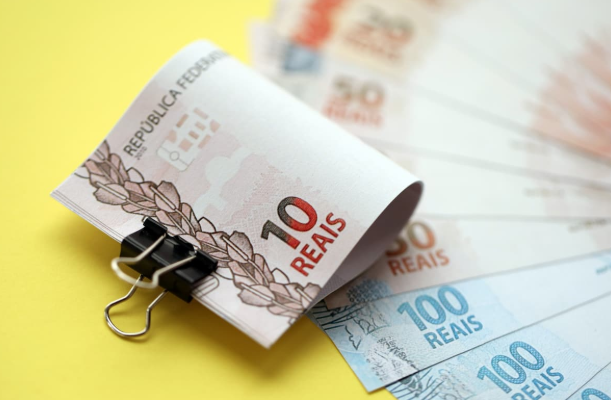R$ to USD: Understanding the Brazilian Real to US Dollar Exchange

The exchange rate between R$ to USD is a key factor in global trade, travel, and finance. If you are planning to visit the United States, invest in international markets, or simply track currency trends, knowing how the Brazilian Real (R$) compares to the US Dollar (USD) is essential. In this article, we will explore how R$ to USD exchange works, the factors that affect it, and practical tips for converting money efficiently.
The R$ to USD conversion impacts millions of people worldwide. Brazilian businesses trading with American companies, tourists planning trips to the US, and investors in forex markets all pay close attention to the rate. A small change in the exchange rate can significantly affect costs and profits. Understanding these dynamics helps you make smarter financial decisions.
Table of Contents
What Is the R$ to USD Exchange Rate
The R$ to USD exchange rate is the price of one Brazilian Real in terms of the US Dollar. For example, if 1 R$ equals 0.20 USD, you need five Reals to get 1 Dollar. This rate changes constantly because it depends on supply and demand in the foreign exchange (forex) market.
Banks, money changers, and online platforms all provide R$ to USD conversions, but rates can differ slightly. Online tools and forex apps make it easy to check the latest rates in real time, helping travelers and businesses plan better.
Factors Affecting R$ to USD Rates
Several factors influence the R$ to USD exchange rate:
- Economic Conditions in Brazil: Inflation, GDP growth, and political stability in Brazil directly affect the value of the Real. Higher inflation usually weakens R$, reducing its value against USD.
- US Economic Conditions: The strength of the US economy and policies by the Federal Reserve, like interest rate changes, can make USD stronger or weaker.
- Global Trade: Brazil exports commodities like soybeans, coffee, and iron ore. Demand for these goods can influence the Real’s value.
- Market Sentiment: Investor confidence, geopolitical events, and global crises can cause rapid fluctuations in R$ to USD rates.
How to Convert R$ to USD
Converting R$ to USD can be done through multiple methods:
- Banks: Most banks offer currency exchange services, but rates may include fees.
- Currency Exchange Offices: These often provide better rates than banks but always check for hidden charges.
- Online Services: Websites and apps like Wise or PayPal allow you to convert currencies digitally.
- ATMs Abroad: When traveling, withdrawing USD from an ATM can be convenient, though banks may charge a conversion fee.
It’s crucial to compare rates and fees before converting large sums to get the best deal.
Historical Trends of R$ to USD
The value of the Brazilian Real compared to the US Dollar has changed significantly over time. For example:
- 1994-2000: Brazil stabilized its economy with the Real Plan, initially pegging R$ close to USD.
- 2000-2010: R$ strengthened as Brazil’s economy grew and foreign investments increased.
- 2010-2020: Political challenges and economic crises weakened R$, causing it to lose value against USD.
- 2020-Present: Global events like the COVID-19 pandemic and inflation have caused volatility in the R$ to USD rate.
Studying historical trends helps investors and businesses predict future movements and make informed decisions.
Why R$ to USD Matters for Travelers
For Brazilian travelers visiting the US, the R$ to USD rate directly affects travel costs. A stronger Real means more purchasing power in the US, reducing expenses for hotels, dining, and shopping. Conversely, a weaker Real makes trips more expensive.
Tips for travelers:
- Monitor the exchange rate before booking flights and hotels.
- Exchange money in advance when rates are favorable.
- Use credit cards with low foreign transaction fees.
R$ to USD in Business and Trade
Brazilian companies importing goods from the US pay attention to the R$ to USD rate because it affects costs and pricing. For exporters selling to the US, a weaker Real can increase profits as their products become cheaper for American buyers.
Businesses use strategies like hedging to protect against currency fluctuations. This ensures predictable costs and profits even when exchange rates change rapidly.
Online Tools to Track R$ to USD
Several online platforms provide real-time R$ to USD rates:
- XE.com: Offers live rates and historical charts.
- OANDA: Popular with forex traders for accurate exchange data.
- Google Finance: Quick conversion and trend tracking.
These tools help users make timely decisions whether for travel, trading, or investment.
Tips to Get the Best Conversion Rate
- Compare rates from multiple sources.
- Avoid airport currency exchanges—they often have poor rates.
- Consider using online transfer services for large amounts.
- Plan ahead if you know the rate may fluctuate.
Risks in R$ to USD Exchange
Currency exchange involves risks:
- Volatility Risk: Sudden market changes can affect conversion rates.
- Transaction Fees: Hidden fees reduce the effective amount received.
- Fraud Risk: Always use trusted platforms or banks for conversions.
Awareness of these risks can save money and prevent problems.
Conclusion
Understanding the R$ to USD exchange rate is essential for travelers, businesses, and investors. It is influenced by economic conditions, global trade, and market sentiment. By monitoring rates, using trusted conversion methods, and planning ahead, you can minimize risks and maximize benefits. Whether for personal use or business, staying informed about R$ to USD trends ensures smarter financial decisions.
FAQs
Q1: What is the current R$ to USD rate?
A1: The rate fluctuates daily. You can check trusted financial websites or forex apps for real-time updates.
Q2: Is it better to exchange money in Brazil or the US?
A2: Often, exchanging in Brazil gives slightly better rates, but check online rates to compare.
Q3: Can I use a credit card abroad to convert R$ to USD?
A3: Yes, but check if your card charges foreign transaction fees.
Q4: How do political events in Brazil affect R$ to USD?
A4: Political instability can weaken the Real, reducing its value against USD.
Q5: Are online currency exchanges safe?
A5: Yes, as long as you use reputable platforms like Wise, PayPal, or established banks.
Q6: Does the R$ to USD rate affect imports and exports?
A6: Absolutely. A weaker Real can make exports cheaper and imports more expensive, affecting trade profits.



